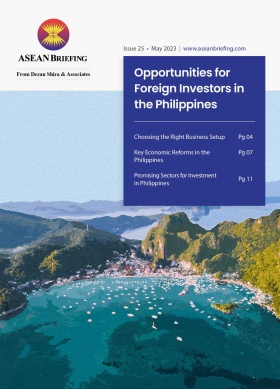Boosting India-ASEAN Economic Collaboration: Key Highlights from PM Modi’s 12-Point Proposal
India’s Prime Minister Narendra Modi recently attended the annual ASEAN-India summit and the 18th East Asia summit held in Jakarta, Indonesia. During the visit, Modi unveiled an extensive 12-point proposal designed to enhance collaboration between India and ASEAN member countries. As India continues to play a pivotal role in shaping the post-COVID world order, businesses should closely monitor India-ASEAN developments and explore avenues for collaboration and growth in this vast market landscape.
Prime Minister Narendra Modi participated in the 20th annual ASEAN-India summit and the 18th East Asia summit held in Jakarta on September 7. During the visit, he presented a comprehensive 12-point proposal aimed at deepening cooperation between India and ASEAN nations. The move underscores India’s commitment to fostering stronger ties with ASEAN economies across various sectors. It offers significant opportunities for businesses to expand their footprint in Southeast Asia, improve regional trade and commercial ties, tap into prospects emerging from their ongoing digital transformation, and stay relevant in matters concerning geopolitics.
Moreover, the recent ASEAN-India Summit also witnessed the adoption of two crucial joint statements, one focusing on Maritime Cooperation, and the other addressing Food Security. These statements mark significant developments in the ASEAN-India Comprehensive Strategic Partnership. During the summit, Prime Minister Narendra Modi engaged in extensive discussions with ASEAN partners, laying the groundwork for the future course of this strategic partnership.
Modi’s 12-point proposal
The 12-point proposal covers a wide range of areas crucial for business and economic engagement, reflecting India’s commitment to fostering robust ties with its ASEAN partners.
- Enhanced connectivity: One of the focal points of the proposal is the establishment of enhanced connectivity. This includes the creation of a multi-modal connectivity and economic corridor linking Southeast Asia, India, West Asia, and Europe. This move is expected to boost trade and investment opportunities for businesses in these regions.
- Digital transformation: Prime Minister Modi offered to share India’s digital public infrastructure stack with ASEAN partners. This initiative aims to facilitate digital transformation across sectors, promoting innovation and efficiency in businesses.
- Digital Future Fund: To further strengthen digital cooperation, Modi announced the ASEAN-India Fund for Digital Future. This fund will focus on fostering collaboration in digital transformation and financial connectivity, potentially opening up new avenues for businesses in the digital sector.
- Research support: India pledged renewed support to the Economic and Research Institute of ASEAN and East Asia (ERIA) as a knowledge partner. This move will enhance research and development opportunities for businesses and promote informed decision-making.
- Advocating for the Global South: The proposal emphasized the need to collectively raise issues faced by the Global South in multilateral forums, signaling India’s commitment to ensuring the interests of developing nations are heard.
- Traditional medicine center: India invited ASEAN countries to join the Global Centre for Traditional Medicine, established by WHO in India. This offers opportunities for cooperation in healthcare, including traditional medicine, a potential growth area for businesses.
- Mission LiFE: Prime Minister Modi called for cooperation on Mission LiFE, offering avenues for businesses to contribute to health and environmental sustainability efforts.
- Affordable medicines: India’s offer to share its expertise in providing affordable and quality medicines through Jan-Aushadhi Kendras could benefit businesses in pharmaceutical manufacturing and distribution.
- Counterterrorism cooperation: The proposal called for collective action against terrorism, terror financing, and cyber-disinformation, promoting a secure environment for businesses.
- Disaster resilience: India invited ASEAN countries to join the Coalition for Disaster Resilient Infrastructure, enhancing disaster preparedness and response capabilities, which can be vital for business continuity.
- Disaster management: Cooperation in disaster management can reduce business risks in the face of natural disasters, ensuring smoother operations.
- Maritime security: Enhanced cooperation on maritime safety, security, and domain awareness is vital for businesses engaged in maritime trade and logistics.
Joint statements on maritime cooperation and food security: Key takeaways
Maritime cooperation
The first joint statement centers on maritime cooperation, reflecting the shared commitment of ASEAN and India to bolster collaboration in the maritime domain. Key highlights include:
- Enhancing maritime safety and security: ASEAN-India cooperation in maritime safety and security will be strengthened through measures such as emergency response, Humanitarian Assistance and Disaster Relief (HADR), Search and Rescue (SAR) operations, and countering piracy, armed robbery, trafficking, and smuggling.
- Improving information sharing and capacity building: Efforts will be made to enhance information sharing and capacity building in the maritime domain, involving specialized regional bodies.
- Promoting sustainable maritime practices: Collaboration will focus on sustainable use of oceans and marine resources, involving maritime authorities, law enforcement agencies, and exploration of sustainable marine-based renewable energy.
- Advancing connectivity and blue economy: Efforts will be directed towards enhancing connectivity in the Indo-Pacific region, promoting blue economy initiatives related to marine resource development, climate change mitigation, and marine pollution control, and engaging stakeholders including the private sector, academia, and coastal communities.
Food security
The second joint statement focuses on Food Security, underlining the significance of ensuring a stable and sufficient food supply for the ASEAN-India region. Key highlights include:
- Welcoming ASEAN food security declaration: Applaud the adoption of the ASEAN Leaders’ Declaration on Strengthening Food Security and Nutrition in Response to Crises on September 5, 2023.
- National policy framework exchange: Facilitate the exchange of national policy frameworks, especially for rice and vital crop commodities, while promoting agricultural diversity to enhance food security and nutrition. Strengthen coordination of food security and nutrition policies across ASEAN member states and India.
- cooperation in food Security and Nutrition: Enhance collaboration in the fields of food security and nutrition. This includes promoting trade and investment, capacity building, research and development, technology and innovation, sustainable management, infrastructure development, and sharing information across the food, agriculture, forestry, and fisheries sectors.
- Agrifood system resilience: Support ASEAN-India preparedness for the long-term resilience and sustainability of the agrifood system. Strengthen local and regional food value chains, diversify local food sources, and optimize resource utilization, especially for small-scale farmers, fishers, and MSMEs.
- financing climate-Friendly Technologies: Encourage funding for climate-friendly technologies, in partnership with Multilateral Development Banks and development finance institutions. Embrace a climate-smart approach for sustainable agricultural production.
- Enhancing social protection and infrastructure: Explore best practices in social protection and enhance infrastructure for small and marginal farmers, women, and youth. Utilize economic opportunities to promote inclusive agriculture value chains and resilient food systems.
- Utilizing digital technologies: Promote the use of digital technologies for agricultural transformation, including exploring interoperability of relevant digital public infrastructure.
Overview of India-ASEAN economic relations
India’s Act East Policy, launched in 2014, stands as a fundamental cornerstone of its foreign policy, with a primary focus on bolstering engagement with the ASEAN and other regional nations. India-ASEAN relations represent a dynamic and multifaceted partnership, spanning economic collaboration, regional connectivity, security, tourism, education, research, and investment.
Strong trade partners
India and ASEAN share a robust economic partnership, with ASEAN ranking among India’s largest trading allies. ASEAN, on the other hand, holds the position of India’s fourth-largest trading partner, with a total trade value of US$110.4 billion recorded in the financial year (FY) 2021-22. During this period, India’s exports to ASEAN accounted for US$42.327 billion, while imports from ASEAN totaled US$68.07 billion, marking a significant milestone as bilateral trade exceeded US$100 billion for the first time. In FY 2022-23, India and ASEAN recorded a bilateral trade volume of US$131.5 billion. This bilateral trade accounted for 11.3 percent of India’s total global trade during the same period.
The implementation of the ASEAN-India Trade in Goods Agreement (AITIGA) in 2010 has played a pivotal role in enhancing trade and investment ties between the two regions. During the twentieth AEM (ASEAN Economic Ministers)-India Consultation meeting convened in Semarang, Indonesia, in August 2023, both ASEAN and India reached a consensus to accelerate negotiations for the revision of their current goods agreement, with the aim of finalizing the discussions by 2025. This review was a long-standing demand of Indian businesses, and its early initiation aims to make the Free Trade Agreement (FTA) more trade-facilitative and mutually beneficial. The ministers agreed to follow a quarterly negotiation schedule and target the completion of the review by 2025. This review is expected to enhance trade diversification while addressing current trade imbalances.
|
India’s Trade with Individual ASEAN Countries in FY 2021-22 (US$ Billion) |
|||
|
Country |
Export |
Import |
Total trade |
|
Brunei |
0.043 |
0.394 |
0.437 |
|
Cambodia |
0.198 |
0.094 |
0.293 |
|
Indonesia |
8.471 |
17.702 |
26.174 |
|
Lao PDR |
0.014 |
0.0008 |
0.015 |
|
Malaysia |
6.995 |
12.424 |
19.419 |
|
Myanmar |
0.892 |
1.001 |
1.894 |
|
Philippines |
2.107 |
0.729 |
2.836 |
|
Singapore |
11.105 |
18.956 |
30.107 |
|
Thailand |
5.751 |
9.332 |
15.083 |
|
Vietnam |
6.702 |
7.435 |
14.138 |
Investment landscape
Between 2000 to 2021, the cumulative Foreign Direct Investments (FDIs) from ASEAN countries into India amounted to US$117.88 billion. Notably, the majority of these investments, totaling US$115 billion, came from Singaporean investors.
On the other hand, Indian investments into ASEAN nations from April 2019 to March 2022 reached a total of US$55.5 billion. Within this figure, a significant portion, specifically US$51.5 billion, was invested in Singapore.
Economic engagements
There are three primary formal institutional mechanisms employed to facilitate and enhance economic connectivity between India and ASEAN:
- ASEAN Economic Ministers-India Consultations (AEM + India): The ASEAN Economic Ministers (AEM) represent a key ASEAN sectoral body, and meetings between AEM and India hold significant importance within this context. These consultations typically involve the participation of the Commerce Minister. Recent AEM-India meetings have predominantly focused on the review of the AITIGA.
- The ASEAN India Framework Agreement on Comprehensive Economic Cooperation (2003): This agreement was finalized during the 2nd Summit meeting in 2003 and serves as the foundational framework for establishing an ASEAN-India FTA (AIFTA). Under the provisions of this framework agreement, several agreements have been concluded, including the AITIGA, signed in 2009 and in force since January 1, 2010. Additionally, agreements on Trade in Services (AITISA) and Investment have been signed in 2014 and ratified by all parties.
- ASEAN-India Business Council (AIBC): Established in 2005, the AIBC is an integral component that serves as a pivotal forum for fostering closer business linkages and enhancing economic cooperation between India and ASEAN. AIBC meetings, which usually coincide with the ASEAN Business Advisory Council gatherings, also create opportunities for Indian business leaders to network with their counterparts in the ASEAN region.
Regional connectivity
India is actively working on enhancing regional connectivity with ASEAN nations through initiatives such as the India-Myanmar-Thailand (IMT) Trilateral Highway and the Kaladan Multimodal Transit Transport Project. These projects aim to bolster trade and connectivity in the region.
Indo-Pacific vision
India strategically places ASEAN at the center of its Indo-Pacific vision, known as Security and Growth for All in the Region (SAGAR). This underscores the importance of ASEAN in regional stability and economic growth.
Tourism and people-to-people contacts
India has taken steps to enhance cultural exchange and tourism cooperation with ASEAN. As the first Dialogue Partner, India signed an MoU on Strengthening Tourism Cooperation, promoting greater people-to-people connections.
About Us
ASEAN Briefing is produced by Dezan Shira & Associates. The firm assists foreign investors throughout Asia and maintains offices throughout ASEAN, including in Singapore, Hanoi, Ho Chi Minh City, and Da Nang in Vietnam, in addition to Jakarta, in Indonesia. We also have partner firms in Malaysia, the Philippines, and Thailand as well as our practices in China and India. Please contact us at asean@dezshira.com or visit our website at www.dezshira.com.
- Previous Article Cambodia Opens Foreign Employee Quota Application for 2024
- Next Article Singapore-Australia Trade and Investment: A Strategic Review






